Best Supplement for Vascularity: Get That Veiny Look
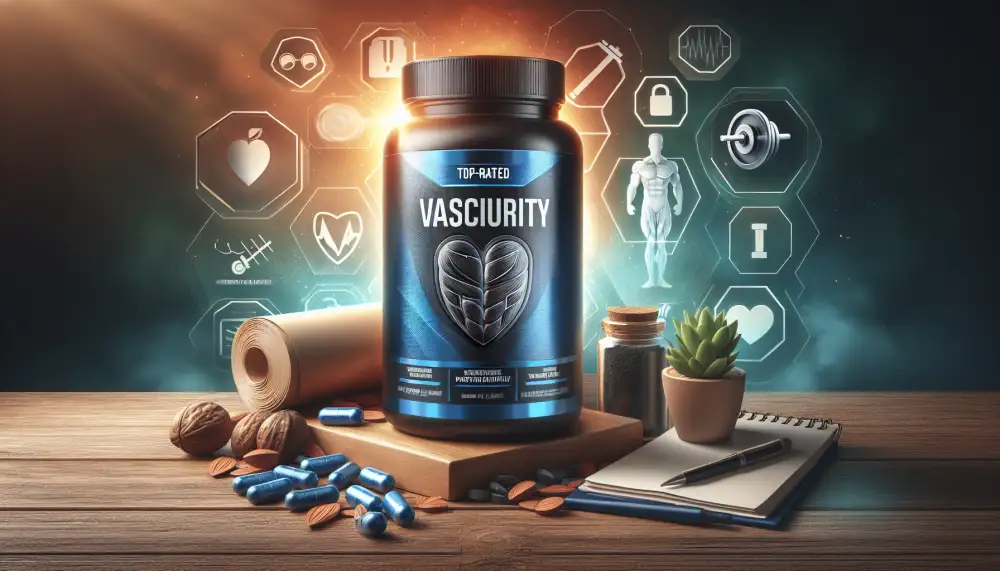
- Understanding Vascularity
- Supplements and Blood Flow
- Nitric Oxide Boosters
- L-Citrulline: Top Choice
- Beetroot Extract: Natural Nitrate
- Creatine: Muscle Hydration
- Taurine: Blood Vessel Function
- Other Potential Supplements
- Dosage and Safety Precautions
- Lifestyle Factors for Vascularity
- Hydration and Electrolytes
- Exercise and Muscle Growth
- Genetics and Individual Variation
- Consulting a Healthcare Professional
Understanding Vascularity
Vascularity, the visibility of veins beneath the skin, is a coveted trait among athletes and fitness enthusiasts. It's often seen as a sign of low body fat and high muscle definition. While genetics play a role, certain supplements can enhance vascularity by promoting nitric oxide production, a molecule that relaxes blood vessels, leading to increased blood flow and temporary vein dilation.
One of the most effective and well-researched supplements for vascularity is L-citrulline. This amino acid is a precursor to L-arginine, which in turn converts to nitric oxide in the body. Studies have shown that L-citrulline supplementation can increase nitric oxide levels, improve blood flow, and enhance exercise performance. Another popular supplement is beetroot juice, naturally rich in nitrates. Like L-citrulline, nitrates convert to nitric oxide in the body, promoting vasodilation.
While many supplements claim to boost vascularity, it's crucial to choose products backed by scientific evidence and consult with a healthcare professional before incorporating them into your routine. Remember, supplements should complement a healthy lifestyle, including regular exercise and a balanced diet, for optimal results.
Supplements and Blood Flow
Many athletes and fitness enthusiasts seek ways to enhance vascularity, the prominence of veins visible beneath the skin. While training and nutrition play a crucial role, some supplements are purported to promote blood flow and potentially improve vascularity. One such supplement is L-citrulline, an amino acid that converts to L-arginine in the body. L-arginine is a precursor to nitric oxide (NO), a molecule that relaxes blood vessels, leading to increased blood flow and potentially enhancing vascularity. Studies suggest that L-citrulline supplementation may increase nitric oxide levels, improve blood flow, and enhance exercise performance. Another supplement that may support vascularity is beetroot juice, which is rich in nitrates. Nitrates are converted to nitric oxide in the body, leading to similar effects as L-citrulline. Studies have shown that beetroot juice supplementation can reduce blood pressure, improve blood flow, and enhance exercise tolerance.
While these supplements show promise, it's essential to remember that individual responses may vary. It's crucial to consult with a healthcare professional before taking any new supplements, especially if you have underlying health conditions or are taking medications. Moreover, supplements should not be considered a magic solution. A balanced diet, proper hydration, and regular exercise remain the cornerstones of achieving optimal vascularity.
Nitric Oxide Boosters
Nitric oxide is a molecule that plays a key role in vasodilation, the widening of blood vessels. This can lead to improved blood flow and nutrient delivery to muscles, which may enhance athletic performance. Some people use nitric oxide boosters to try to improve their workouts and increase vascularity, the appearance of veins.
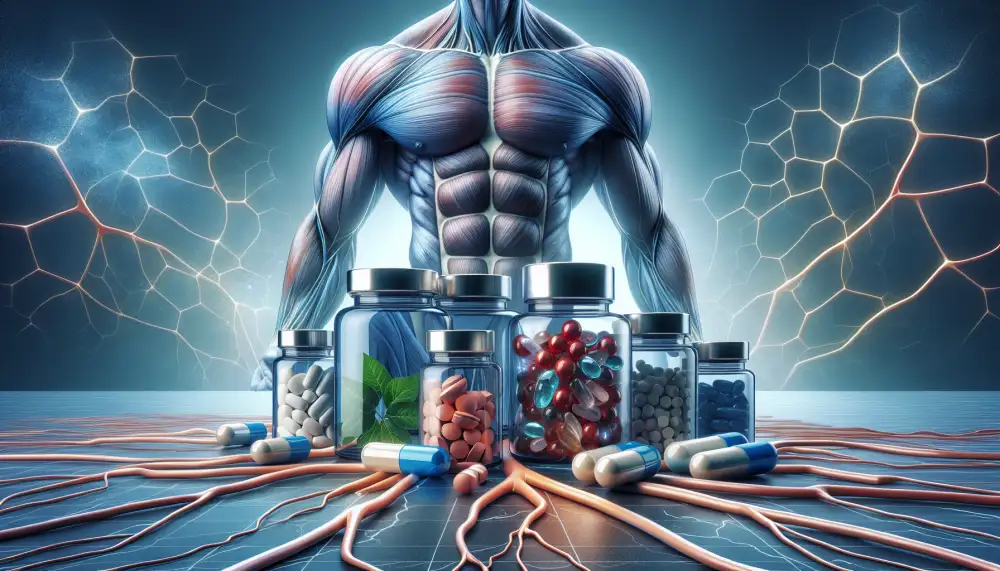
These supplements typically contain ingredients that are precursors to nitric oxide production in the body. Some popular nitric oxide boosting ingredients include L-arginine, L-citrulline, and beetroot extract.
L-arginine is an amino acid that is converted into nitric oxide in the body. L-citrulline is another amino acid that can be converted into L-arginine, and therefore nitric oxide. Beetroot extract is a natural source of nitrates, which can also be converted into nitric oxide in the body.
While some people may experience benefits from taking nitric oxide boosters, more research is needed to determine their efficacy and long-term safety. It is important to talk to your doctor before taking any supplements, including nitric oxide boosters.
It's important to note that individual responses to supplements can vary. What works best for one person may not work as well for another. It's always a good idea to consult with a healthcare professional before starting any new supplement regimen. They can help you determine the appropriate dosage and assess any potential risks or interactions based on your individual health status and medication use.
L-Citrulline: Top Choice
When it comes to achieving that shredded, vascular physique, L-citrulline consistently ranks as a top choice among athletes and fitness enthusiasts. This amino acid, found naturally in watermelon, plays a crucial role in boosting nitric oxide (NO) production within the body. NO acts as a vasodilator, relaxing blood vessels and improving blood flow. This enhanced circulation translates to more nutrients and oxygen reaching your muscles, resulting in increased pumps, enhanced endurance, and greater vascularity.
L-citrulline surpasses its cousin L-arginine in effectiveness because it's more readily absorbed by the body and leads to sustained NO production. Supplementing with L-citrulline can result in fuller, more prominent veins, especially during and after workouts. This effect is amplified when combined with proper hydration and low body fat levels. If you're serious about maximizing your vascularity, L-citrulline deserves a prime spot in your supplement regimen.
Beetroot Extract: Natural Nitrate
Beetroot extract, a natural source of nitrates, has gained significant attention as a potential supplement for enhancing vascularity. Nitrates, once converted by the body into nitric oxide, play a crucial role in dilating blood vessels, improving blood flow, and enhancing nutrient delivery to muscles. This vasodilatory effect can result in more prominent and defined blood vessels, often sought after by athletes and bodybuilders.

While beetroot extract can contribute to nitric oxide production, it's essential to acknowledge that individual responses may vary. Factors like training intensity, diet, and overall health can influence the effectiveness of beetroot extract as a vascularity enhancer.
For those seeking supplements to enhance vascularity, a combination of ingredients may be more effective than beetroot extract alone. Look for products that incorporate other nitric oxide boosters like L-citrulline, L-arginine, or pomegranate extract. These ingredients work synergistically to optimize nitric oxide levels and promote vasodilation.
Remember, supplements should complement a well-rounded approach to fitness and nutrition. Consistent exercise, a balanced diet, and adequate hydration are fundamental pillars for achieving optimal vascularity.
Creatine: Muscle Hydration
Creatine doesn't directly increase vascularity. Vascularity, the appearance of veins prominently on the skin, is primarily influenced by two factors: low body fat and increased blood flow. While creatine doesn't directly impact body fat, its muscle-building effects can contribute to a leaner physique over time, potentially making veins more visible.
Creatine's main function is to enhance muscle performance by increasing phosphocreatine stores in muscles. This can lead to increased strength, power, and muscle growth, which indirectly might enhance vascularity in the long run. However, it's not the primary supplement for that purpose.
If your goal is to enhance vascularity, focusing on supplements that promote nitric oxide (NO) production would be more effective. NO is a vasodilator, meaning it relaxes blood vessels, allowing for increased blood flow and potentially enhancing vascularity.
Some popular and generally safe supplements known for their potential to boost NO production include L-citrulline, beetroot juice, and nitrates. Remember that individual responses to supplements can vary, and it's always best to consult with a healthcare professional before starting any new supplement regimen, especially if you have underlying health conditions.
Taurine: Blood Vessel Function
Taurine is a naturally occurring amino acid-like compound found in high concentrations in the heart, brain, and muscles. It plays a role in various bodily functions, including regulating calcium levels, stabilizing cell membranes, and supporting nerve signaling. While some people believe taurine can enhance vascularity, the scientific evidence supporting this claim is limited and inconclusive.
| Supplement | Mechanism | Proven Effectiveness | Side Effects Potential |
|---|---|---|---|
| L-Citrulline | Boosts nitric oxide levels, dilating blood vessels | Moderate | Generally safe, mild digestive issues in some |
| Nitrates (e.g., beetroot juice) | Convert to nitric oxide in the body | Moderate | Generally safe, may cause temporary redness or headaches |
Some studies suggest that taurine may improve blood flow and reduce blood pressure, potentially contributing to a more vascular appearance. These effects are thought to be related to taurine's ability to promote the production of nitric oxide, a molecule that relaxes blood vessels and improves circulation. However, more research is needed to confirm these findings and determine the optimal dosage and long-term effects of taurine supplementation on vascularity.
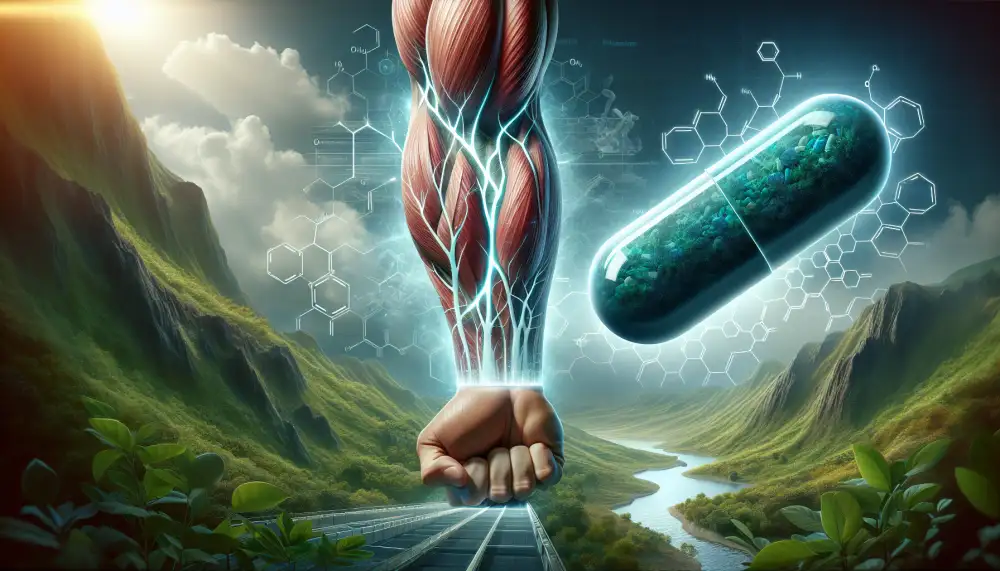
Instead of focusing solely on taurine, it's essential to prioritize a holistic approach to enhance vascularity. This includes:
Engaging in regular resistance training to increase muscle mass and promote blood vessel growth
Following a balanced diet rich in fruits, vegetables, and whole grains
Staying adequately hydrated to support optimal blood flow
Maintaining a healthy weight to reduce strain on blood vessels
Getting enough sleep to allow for muscle recovery and growth
While taurine may play a role in vascular health, it's crucial to consult with a healthcare professional before taking any supplements, including taurine. They can help determine the appropriate dosage and assess potential risks and interactions with other medications or health conditions.
Remember that enhancing vascularity is a gradual process that requires a multifaceted approach encompassing exercise, nutrition, and overall health management.
Other Potential Supplements
While nitrates remain a top choice for enhancing vascularity, several other supplements show promise, though research is still emerging.
L-Citrulline is an amino acid that converts to L-arginine in the body, boosting nitric oxide production more effectively than L-arginine alone. Studies suggest it may improve blood flow and exercise performance.
Beetroot juice is naturally rich in nitrates and has been linked to improved blood flow and lower blood pressure. It’s a favorite among athletes for its potential to enhance endurance.
Garlic contains a compound called allicin, which may relax blood vessels and improve blood flow. Some studies suggest it can lower blood pressure and improve exercise performance.
Taurine is an amino acid that acts as an antioxidant and may improve blood flow. Research suggests it could be beneficial for people with heart failure or high blood pressure.
L-Arginine is a precursor to nitric oxide and may improve blood flow, but its effects are often less pronounced than L-citrulline.
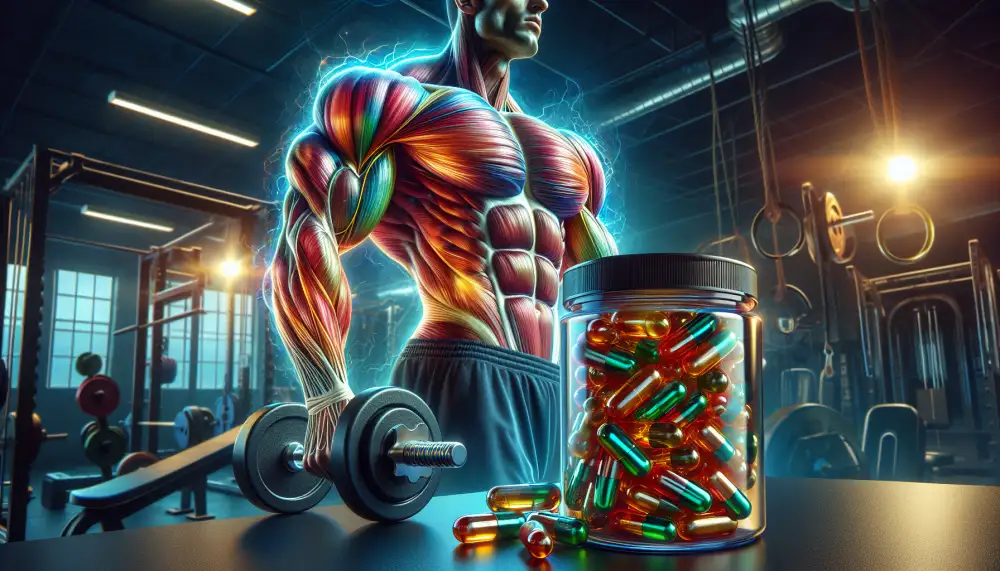
While these supplements show potential, it's crucial to consult your doctor before adding them to your routine, especially if you have underlying health conditions or are taking medications.
Remember, supplements should complement a healthy lifestyle, not replace it. A balanced diet, regular exercise, and adequate hydration are foundational for optimal vascularity.
Dosage and Safety Precautions
It is crucial to consult with a healthcare professional before taking any supplements, including those marketed for vascularity. They can assess your individual health status, consider any underlying medical conditions, and determine if the supplement is appropriate for you. They can also advise you on the correct dosage based on your specific needs. While some individuals may be drawn to supplements claiming to enhance vascularity, it's important to approach such products with caution. The effectiveness and safety of many supplements on the market are not thoroughly researched or regulated. It's essential to prioritize natural methods for improving vascularity, such as exercise and a healthy diet.
Remember, supplements should not be considered a magic solution. Always prioritize your health and consult with a healthcare professional before adding any new supplements to your routine.
Lifestyle Factors for Vascularity
Maintaining a healthy lifestyle is crucial for overall health, including the health of your circulatory system. When it comes to vascularity, certain lifestyle factors can significantly impact the appearance of veins.
Regular exercise is one of the most effective ways to enhance vascularity. Engaging in physical activities like weightlifting, cardio, and high-intensity interval training (HIIT) improves blood flow and strengthens blood vessels.
A balanced diet plays a vital role in vascular health. Consuming foods rich in nitrates, such as beetroot, spinach, and arugula, can help dilate blood vessels and improve blood flow. Additionally, staying adequately hydrated is essential for optimal blood volume and circulation.
Managing stress levels is crucial for vascular health. Chronic stress can lead to elevated cortisol levels, constricting blood vessels and hindering blood flow. Incorporate stress-reducing techniques into your routine, such as meditation, yoga, or deep breathing exercises.
While these lifestyle factors are fundamental, some individuals seek additional support to enhance their vascularity. In such cases, certain supplements may be considered. One notable supplement is L-citrulline, an amino acid that converts to L-arginine in the body. L-arginine is a precursor to nitric oxide, a molecule that relaxes blood vessels and improves blood flow. Supplementing with L-citrulline may promote vasodilation and enhance vascularity.
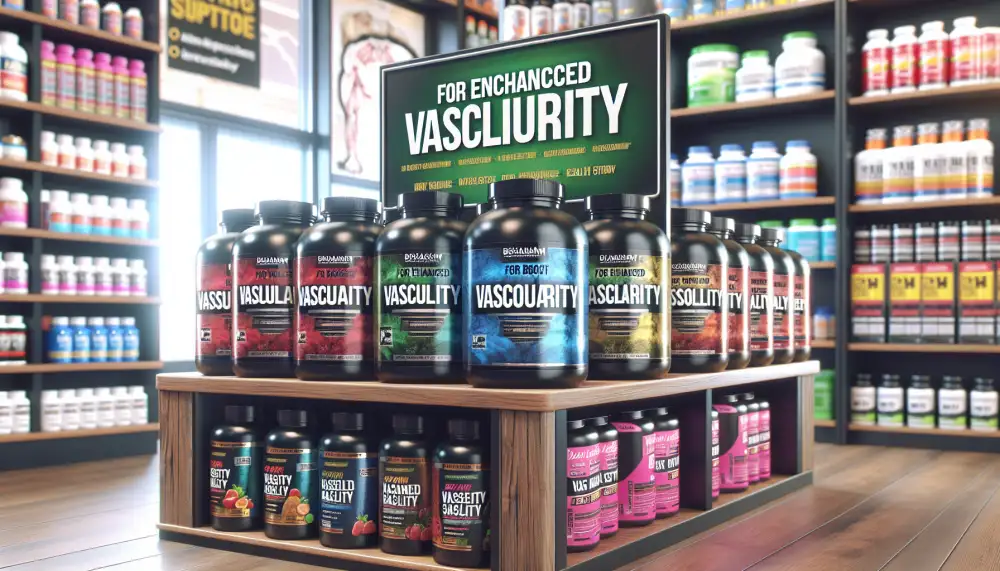
It's important to note that supplements should always be used cautiously and under the guidance of a healthcare professional. They are not a substitute for a healthy lifestyle but rather a potential adjunct. Prioritize implementing the lifestyle factors mentioned earlier as the foundation for optimal vascular health.
Hydration and Electrolytes
Staying hydrated is crucial for overall health, and it plays a vital role in vascularity. Proper hydration ensures optimal blood flow, which is essential for transporting nutrients and oxygen to your muscles. When you're dehydrated, your blood volume decreases, leading to less noticeable veins. Electrolytes, such as sodium, potassium, and magnesium, are lost through sweat, making it essential to replenish them, especially during intense workouts. These electrolytes help regulate fluid balance and muscle function, contributing to better pumps and overall vascularity.
While there's no single "best" supplement for vascularity, some can promote blood flow and hydration. Consider incorporating beetroot juice or powder into your diet, as it's a natural source of nitrates that can enhance nitric oxide production, leading to vasodilation (widening of blood vessels). Another option is L-citrulline, an amino acid that converts to L-arginine in the body, further boosting nitric oxide levels and promoting blood flow. Remember that supplements should complement a balanced diet and exercise regimen, not replace them.
Exercise and Muscle Growth
Exercise, particularly strength training, plays a crucial role in muscle growth and enhancing vascularity. When you engage in resistance exercises like weightlifting, you create microscopic tears in your muscle fibers. Your body responds to this damage by repairing and rebuilding these fibers stronger and larger than before, a process known as muscle protein synthesis.
This increase in muscle mass contributes to vascularity by pushing your veins closer to the skin's surface, making them more visible. Additionally, exercise boosts nitric oxide production, a molecule that relaxes blood vessels, leading to increased blood flow and further enhancing vascularity.
While a healthy diet and consistent exercise are paramount, some individuals seek supplements to further enhance their vascularity. One supplement that has gained popularity for this purpose is L-citrulline. L-citrulline is an amino acid that converts into L-arginine in the body, which then boosts nitric oxide production. This increase in nitric oxide can lead to vasodilation, widening the blood vessels and making them appear more prominent.
Remember, supplements should complement, not replace, a balanced diet and regular exercise routine. Always consult with a healthcare professional before incorporating any new supplements into your regimen, especially if you have underlying health conditions.
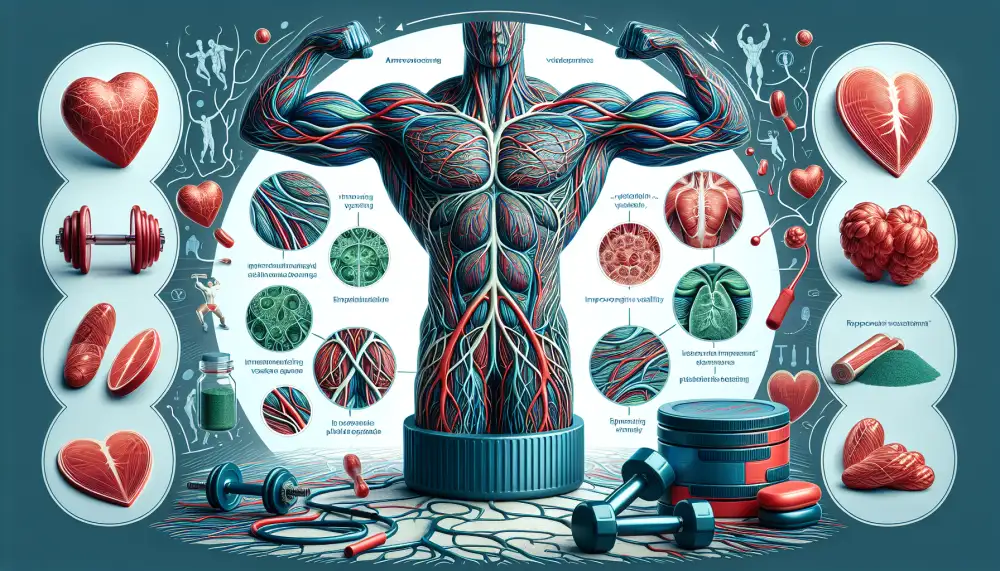
Genetics and Individual Variation
While some supplements might promise enhanced vascularity, it's crucial to understand that genetics play a significant role in an individual's predisposition to visible veins. Factors like skin thickness, body fat percentage, and the distribution and size of blood vessels are largely determined by your genes.
Some individuals naturally have thinner skin and less subcutaneous fat, making their veins more prominent. Others may have a genetic predisposition to larger veins or a higher density of blood vessels near the skin's surface.
While you can't change your genetic makeup, certain supplements might help optimize factors that contribute to vascularity. For instance, nitric oxide boosters, like L-citrulline or beetroot extract, may promote vasodilation, temporarily widening blood vessels and potentially enhancing their appearance.
However, it's essential to consult with a healthcare professional before taking any supplements, as individual responses can vary, and some supplements may have potential side effects or interact with medications.
Consulting a Healthcare Professional
It is crucial to consult a healthcare professional before taking any supplements, especially if you have underlying health conditions or are taking medication. They can assess your individual health status, consider any potential risks or interactions, and provide personalized advice. Remember, supplements are not a substitute for a healthy lifestyle, which includes a balanced diet, regular exercise, and adequate hydration. These factors play a significant role in promoting overall health and vascularity.
While some supplements are marketed for enhancing vascularity, it's important to note that scientific evidence supporting their effectiveness is often limited and inconclusive. Always prioritize your health and consult with a healthcare professional to make informed decisions about your well-being.
Published: 29. 06. 2024
Category: Food



